If you fly over certain parts of Morocco, you will see them filled with greenhouses. Not like in the Westland or other Dutch horticultural clusters, which involve large areas of glass. The Moroccan greenhouses are more low-tech. A demonstration center is currently being built in Morocco to elevate that level for that country's growers.
The center is an almost one-hectare glasshouse and will be located amidst the 20,000 ha of covered cultivation in just the Agadir area. Several Dutch horticultural parties are involved. Three of them, HortiTech, Horti XS, and AGCulture, have updated us.
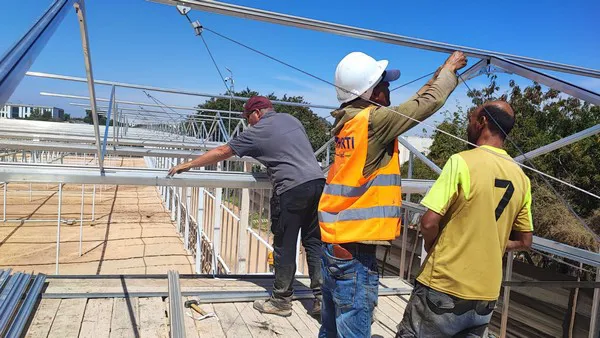
Training
The demo center will be part of the Institute Agronomique et Vétérinaire Hassan II (IAV), an Agadir-based university. That university's Dr. Farid Lekjaa is the driving force behind the project. At the center, the focus will be on water consumption (which must fall) and yield per square meter (which must rise).
Once completed, demonstrations will be held in the greenhouse, and teaching and research are to take place. It will be institutional, long-term education, but there is also room for business-to-business training. "That should raise growers' current level and ensure future growers are properly trained," says Pim van Adrichem of HortiTech.
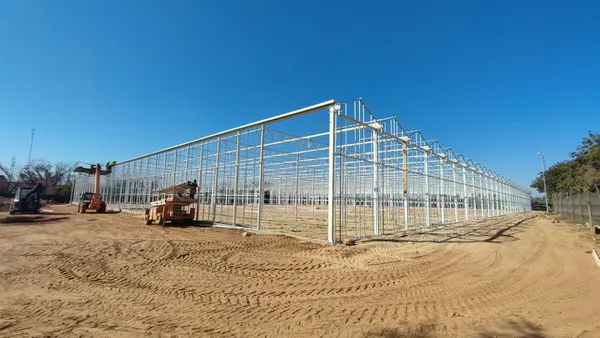
Dutch involvement
People who have been paying close attention would already have seen the photos of the project's progress on social media. It is processing rather slowly, admits Pim. "Things like the pandemic caused a delay. But we got the ball rolling again via the Dutch embassy in Rabat."
Wageningen University & Research (WUR) set up Terms of Reference, which outlines the principles for research. Then, several greenhouse builders were approached to give quotations. The IAV asked HortiTech to help assess them for quality and applicability. "We have experience with the Demokwekerij Westland and the World Horti Center, so could we quickly assess those bids' practicalities," explains Pim.
They accepted Horti XS's tender. "We're using local people to build the greenhouse," says Project Manager Sebastiaan Hijstek. Construction got underway relatively quickly this year, he points out. "It's a challenging project because the language and culture are very different. But it's also great fun."
"Construction is progressing steadily. We're equipping the greenhouse with 'standard' Dutch technology: cultivation gutters to recycle the water and climate computers to properly manage the watering and climate. The project consists of several different-sized greenhouses that, together, cover nearly a hectare," explains Sebastiaan.
Besides these partners, several other Dutch parties are involved, including Hoogendoorn, Koppert, and LDE. LDE is a Leiden, Delft, and Erasmus University Rotterdam consortuim.
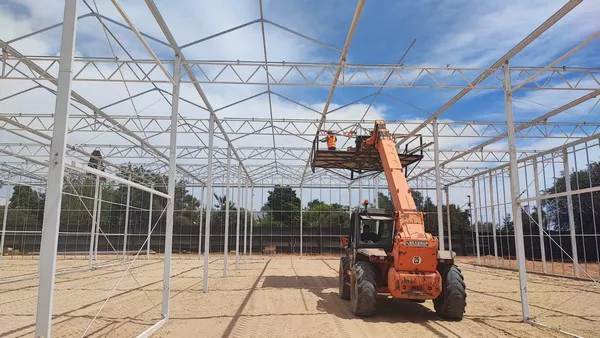
More tomatoes with less water
Once the greenhouse is up and running - in this year's final quarter, if all goes to plan - the focus will initially lie on crops that use quite a lot of water. Here, tomatoes lead the way, says Pim. "On the one hand, because of the number of hectares used for tomato cultivation. On the other, because of this product's export possibilities. Most of the research will focus on more efficient water usage through water-saving techniques and the same cultivation strategies the Netherlands uses. We want to produce more kilos in the Agadir climate."
Concerning those export opportunities: You can find Moroccon products in stores across Europe. Yet there are still plenty of challenges. "The market is starting to shift in a way that creates opportunities for Moroccan produce," states Pim, referring to the energy crisis.
"But before that happens, that country needs to take quite a few steps regarding, say, cultivation knowledge. The companies mentioned are already active in the market and see it expanding in the near future. However, they also recognize the know-how challenges. This center must address those challenges and, where necessary, solve them with the help of its Dutch partners."
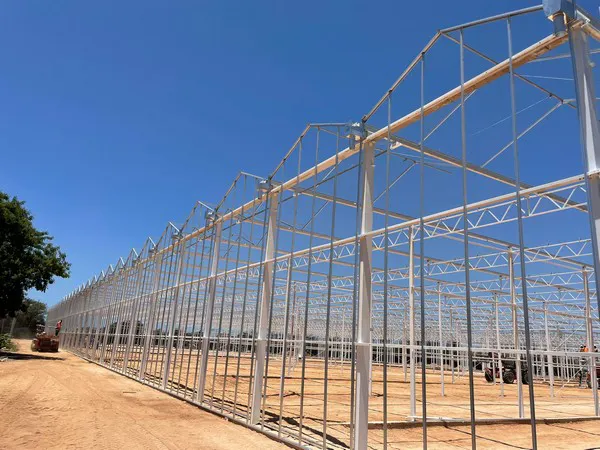
Glass
Unusually, the project will boast a greenhouse with glass decking. That, in a region filled with plastic greenhouses. It will, in fact, be a new type of horticultural glass. Sebastiaan: "You'd think that in Agadir, you should actually choose plastic. However, for practical reasons, we opted for glass. Its ease of use was the deciding factor. Unlike plastic, you don't have to replace the glass every few years."
Pim adds: "And when growing short and long crops together in a research center, there's never an opportune moment to replace that plastic. You'd have to remove it mid-trial. That's not really possible."
This new greenhouse will thus be partly clear glass and partly AGCulture's new Fountain glass. "We've treated one side of this low-iron float glass to create the desired level of diffusivity," explains Michiel van Spronsen of Glascom. "Both sides of the glass are AR-coated."
"So any condensation drains into the gutter as a film of water. When there's condensation, the glass has a slightly lower diffusivity, but higher light transmission." WUR has extensively tested this new glass. "We think it will be very useful in southern greenhouses. We're curious to see the results they'll get," says Michiel.
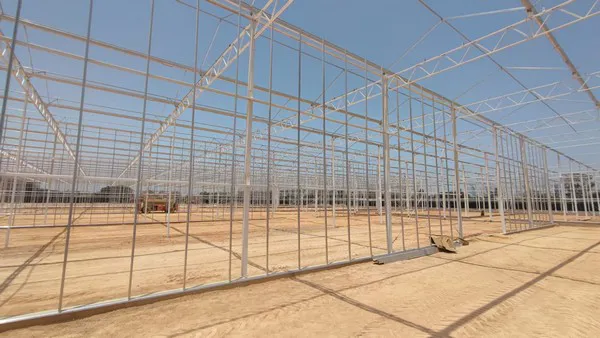
Grower wanted
The first plants will be placed in the greenhouse this winter. After reading this article, are you thinking, 'Hmm, that looks like an interesting job/challenge?' Yes? Then please get in touch with HortiTech. Pim: "The IAV has asked us to help set up the center's management team. They want a Dutch grower to run the nursery for the next five years (and maybe longer)."
This grower will have a staff to help them carry out their task as well as possible. "Where needed, we'll give the grower and their team training and practical advice." Internationally, HortiTech is already doing the same in several locations, including the rapidly-expanding American company, AppHarvest. "The IAV offers a good Dutch-equivalent salary, nice housing, and other fringe benefits. We'd love to hear from any growers who'd like to take on this grand five-year adventure," concludes Pim.
For more information: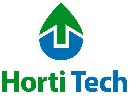
Pim van Adrichem
HortiTech
Email: pim@horti-tech.com
Website: www.horti-tech.com
Sebastiaan Hijstek
Horti XS
Email: bas@hortixs.nl
Website: www.hortixs.com
Michiel van Spronsen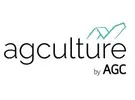
Glascom
Email: vanspronsen@glascomtuinbouw.nl
Website: www.glascomtuinbouw.nl

